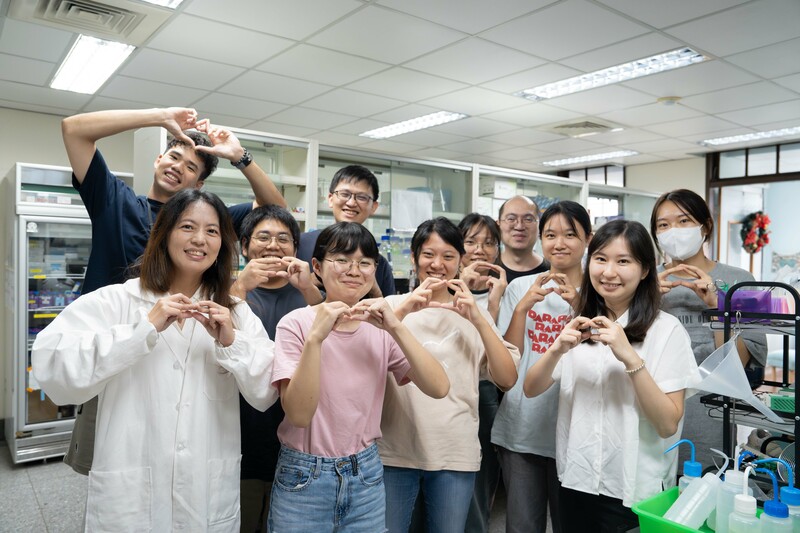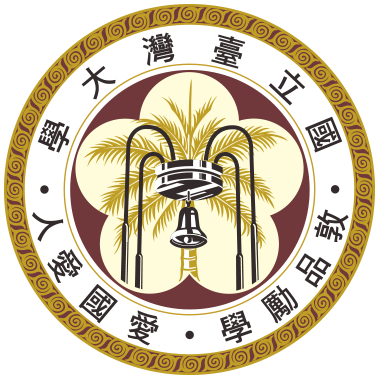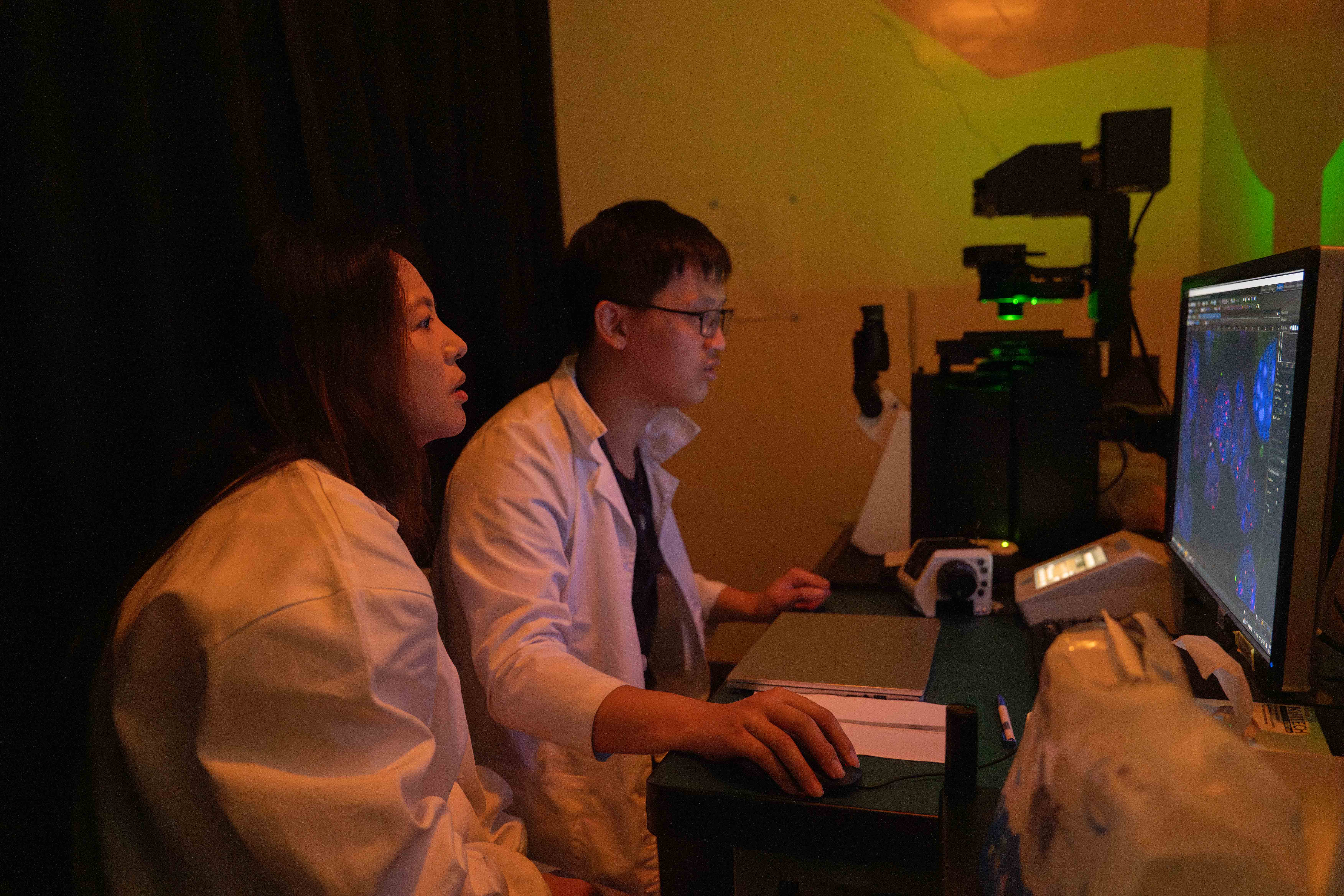Lab of Prof. Hsueh-Ping CHU:https://labspotlight.ntu.edu.tw/labs/12
Non-coding RNA: A new field of life sciences
In recent years, research on non-coding RNA (ncRNA) has gradually gained prominence, challenging past research paradigms that primarily focused on DNA and coding RNA (such as mRNA). Earlier perspectives considered RNA primarily as a gatekeeper of genetic information, with coding RNA being responsible for translating this information into proteins. However, researchers have since discovered that most genomic regions do not participate in protein synthesis. Instead, they produce functional ncRNA. For example, long ncRNA (lncRNA) and small RNAs (such as miRNA) act as hidden commanders that regulate genes, play roles in cell differentiation, immune responses, and contribute to the development of major diseases such as cancer. Exploring the mysteries of ncRNA not only provides a better understanding of the complex effector networks governing gene regulation in humans but also provides potential breakthroughs and in the diagnosis and treatment of diseases.
During her postdoctoral fellowship at Jeannie T. Lee’s laboratory in Harvard Medical School, Dr. Hsueh-Ping Chu focused on studying the functions of the ncRNA known as telomeric repeat–containing RNA (TERRA). She found that TERRA not only interacts with the ends of chromosomes to affect the structural integrity of DNA but also regulates gene expression through epigenetic mechanisms. At the same time, she developed a series of methods to study how ncRNA interacts with chromosomes and proteins. In 2017, after returning to National Taiwan University as a faculty member, Dr. Chu’s team made a groundbreaking discovery: TERRA can regulate the alternative lengthening of telomeres in cancer cells. TERRA forms RNA:DNA hybrids with telomeres, which in turn recruit DNA repair proteins, promoting telomere lengthening. With support from National Taiwan University, the National Science and Technology Council, and Academia Sinica, Dr. Chu’s laboratory has since expanded its research into the characteristics, applications, and extension of other ncRNAs. In 2024, Dr. Chu was awarded the "Most Promising Young Scientist Award" as part of the "Taiwan Outstanding Women in Science Award."
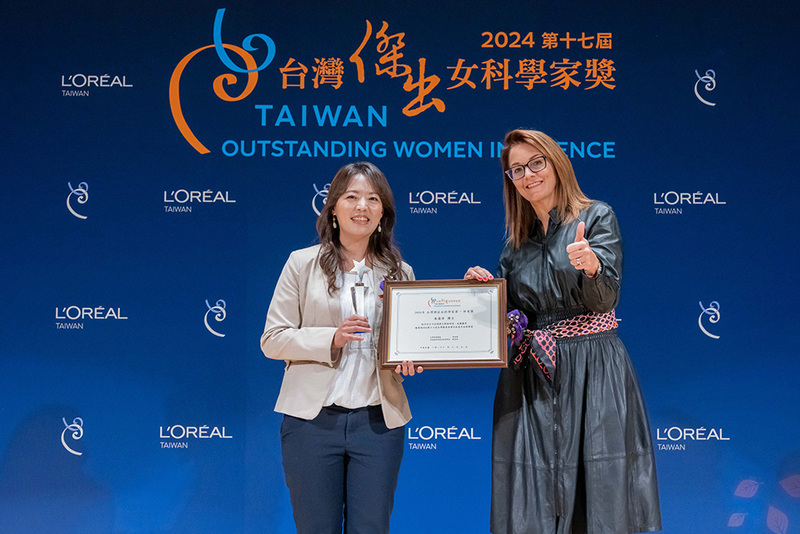
National Taiwan University’s research strengths: Methodology and innovation
Dr. Hsueh-Ping Chu’s laboratory focuses on cutting-edge research in the field of ncRNA, particularly the function of lncRNA in cells. One of the laboratory’s major achievements is the development of the innovative identification of direct RNA interacting proteins (iDRiP) technique. This technique accurately identifies proteins that directly interact with specific RNA, revealing the complex interactions between ncRNA, proteins, and chromatin. The laboratory’s research on the iDRiP technique was published in the renowned journal “Nature Protocols,” solidifying its core position and contributions to the ncRNA research community.
In addition to technological innovation, Dr. Chu’s laboratory has maintained a forward-thinking approach to research topics. The laboratory emphasizes multidisciplinary collaboration and uses a dynamic three-person research team consisting of a PhD student, a Master’s degree student, and an undergraduate student. Team members divide their tasks and focus on different aspects of the same research project, which not only accelerates research progress but also promotes knowledge sharing and the brainstorming of new ideas, resulting in more groundbreaking research discoveries. Recently, the laboratory has been actively involved in SARS-CoV-2 research, focusing on understanding how the virus interacts with host cell proteins. The team has analyzed in-depth how these interactions affect the viral life cycle, particularly the critical processes of replication and assembly. These studies not only enhance our understanding of the virus’s pathogenesis but also provide new directions for antiviral drug development, demonstrating the laboratory’s ability to remain at the forefront of timely and relevant research.

Multidisciplinary, interdepartmental, and multinational collaboration
Dr. Hsueh-Ping Chu has led her laboratory in numerous collaborations both domestically and internationally. The team has sought to apply their research on ncRNA to areas beyond life sciences. For example, in their SARS-CoV-2 research, Dr. Chu’s laboratory collaborated with Professor Sui-Yuan Chang from the Department of Clinical Laboratory Sciences and Medical Biotechnology. Together they co-directed an integrated National Science and Technology Council program, where Professor Chang’s laboratory focused on viral infection-related work, while Dr. Chu’s laboratory conducted subsequent molecular biology experiments to analyze the interactions between the virus and host cells.
As a leading academic institution, National Taiwan University offers numerous opportunities for its laboratories to collaborate with professors from various disciplines. For example, Dr. Chu’s laboratory has collaborated with Associate Professor Chia-Lung Hsieh from the Department of Physics to develop a novel interferometric scattering correlation spectroscopy (iSCORS) technique for observing intracellular molecular dynamics. Professor Hsieh specializes in microscopy hardware and computational applications, while Dr. Chu’s laboratory provides cellular and biomedical support, jointly exploring how this technique can be used to study chromatin organization and dynamics in the cell nucleus. Moreover, the laboratory has also worked with Associate Professor Tom Wei-Wu Chen from National Taiwan University’s College of Medicine to jointly develop medical technology for the rapid diagnosis of osteosarcoma. Professor Chen provides clinical tissue samples, while Dr. Chu’s laboratory conducts biomolecular analysis on these samples. This collaboration aims to accelerate cancer diagnosis and precision medicine for treatment. Dr. Chu has also collaborated with researchers at Academia Sinica, such as Dr. Liuh-Yow Chen from the Institute of Molecular Biology, who shares experimental materials and technical expertise on telomere-related research.
On the international stage, Dr. Hsueh-Ping Chu and Professor Jeannie T. Lee from Harvard Medical School continue to explore the characteristics and functions of ncRNA. Dr. Chu’s laboratory has also collaborated with Dr. Jean-Marc Egly, a member of the French Academy of Sciences and a Yushan Fellow at National Taiwan University, to research telomeric RNA and its connection to cancer. Both parties have maintained regular academic exchanges on the latest research advances. Additionally, with Dr. Egly’s access to support from pharmaceutical companies in France, their collaboration has the potential to provide new opportunities for the development of anticancer drugs.

Talent development: Providing students with international perspectives and opportunities
Dr. Hsueh-Ping Chu is dedicated in developing well-rounded research talents, aiming to inject new vitality into Taiwan’s biotechnology industry. In her laboratory, she not only focuses on providing students with biological knowledge and experimental training but also emphasizes the cultivation of critical thinking and problem-solving skills. To broaden her students’ academic horizons, Dr. Chu encourages participation in academic conferences and provides training in English-language reporting and presentations to strengthen their international academic communication skills. Faced with an increasingly competitive academic world and job market, the laboratory respects each student’s personal career plans and offers diverse suggestions for their development. Dr. Chu notes that the laboratory’s ability to continuously develop innovative advancements and research capabilities is due to the enthusiasm of its students for life sciences research. Despite numerous challenges in the field of life sciences, the laboratory remains resilient and productive.
However, the laboratory faces significant challenges in talent development. The Taiwanese government provides limited scholarship opportunities for international students, and individual research funding is insufficient to cover living expenses. As a result, National Taiwan University faces challenges in attracting international students, which places a higher burden on these students in the laboratory. In addition, the procurement process for state-of-the-art and large-scale equipment required for research is cumbersome and complex. Dr. Chu believes that these factors negatively impact the efficiency of research staff. She hopes that the government will increase funding for higher education and research, provide more scholarships, streamline the equipment procurement process, and foster closer collaborations with the industry so help cultivate high-level biotechnology talents and enhance Taiwan’s competitiveness in international academic and industrial sectors.
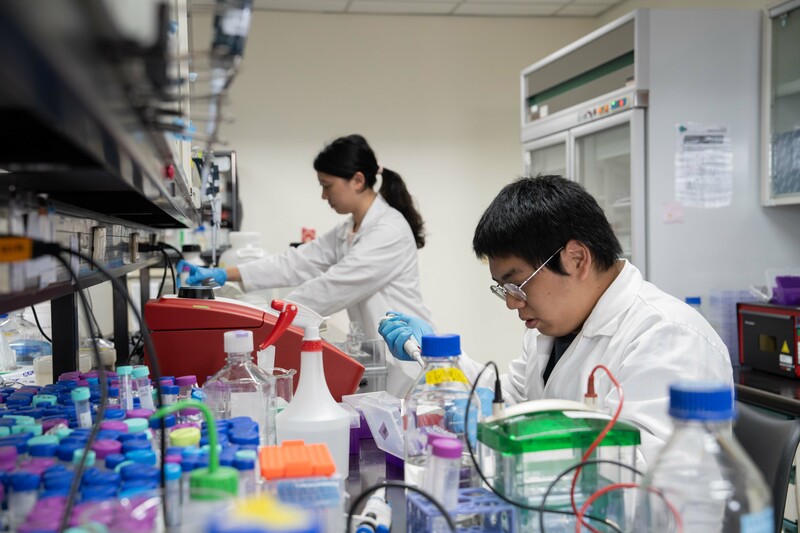
Future prospects and research directions
Dr. Hsueh-Ping Chu and her laboratory have continuously pioneered new research topics in the field of ncRNA. She aims to integrate research results from life sciences with the growing trend of precision medicine. One of the laboratory’s latest studies used long-read sequencing to examine the role of TERRA in the pathogenesis of Alzheimer’s disease. The study found that TERRA expression is significantly increased in patients in the early stages of Alzheimer’s disease. Using single-cell RNA sequencing, the researchers were able to precisely locate differences in TERRA expression across different brain cells. This discovery could serve as a new potential biomarker for the early diagnosis and treatment of Alzheimer’s disease.
The exceptional contributions of Dr. Hsueh-Ping Chu and her team in ncRNA research have revitalized Taiwan’s academic community and opened new horizons for global biomedical research. Through innovative research methodologies, multidisciplinary collaboration, and a focus on talent development, Dr. Chu’s laboratory has not only made substantial contributions to fundamental research but has also actively translated these research findings into clinical applications, advancing human health and welfare. In the future, we hope that Dr. Chu’s laboratory will continue to lead in the field of ncRNA, making substantial contributions to the exploration of the secrets of human life.
